Best PHP Frameworks for Custom eCommerce Websites
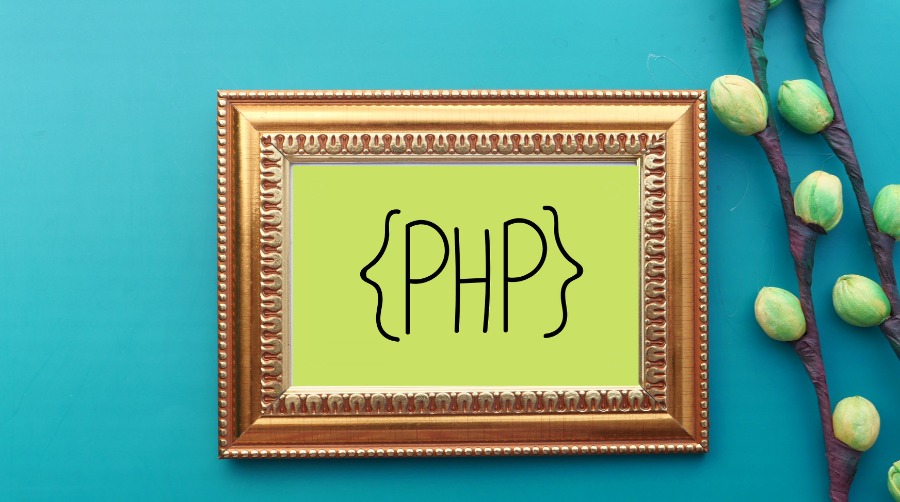
Every eCommerce business needs a website. More than that, it has to be good – unique, with attractive UI, quick response time, full functionality, and easy maintenance. The website must be secure, and therefore, needs constant updating. Finally, a successful website needs excellent analytic tools and algorithms that can directly impact sales.
Every website consists of client-side and server-side. Client-side, also referred to as the front-end, is what a user sees and interacts with. On the other hand, there is a server-side, or back-end, where everything that powers the website is; the back-end defines how the website is working. Front-end and back end are usually written in different languages, as every language has its specific features and limitations.
What is a framework?
One of the most used back-end languages for website building is PHP. Its primary benefit is a large number of frameworks available. Frameworks are platforms that provide the foundation for software application building. Therefore, using frameworks for web development significantly speeds up the process.
Types of frameworks
There are several types of frameworks available on the market. A typical PHP framework is based on Model-View-Controller (MVC) architectural design pattern. The fundamental purpose of MVC is to separate different sections of code according to their purpose.
The Model is where the logic and application data are stored. View stores the visible functionality for users, whereas the Controller allows users to interact between Model and View. Usually, it is done by enabling various data inputs from users.
MVC is extremely helpful in planning the code structure, and it provides the outline for code building. Look at it as a core of the program that remains unchangeable regardless of the purpose of the application. MVC is widely used in software development as it has proven to be successful for different types of projects.
Why are there so many frameworks?
Choosing the framework best for you is one of the most complex decisions at the planning stages. Unlike product specifications and design, which can change during development, changing the framework will take several years. So the choice should be made wisely, depending on your business needs.
Usually, the cost of development, knowledge base, experience, and timing are major factors. However, it is crucial to consider more specific nuances of frameworks to make the best choice. Let’s have a look at the most popular PHP framework and see how they differ.
PHP framework comparison
Laravel
Laravel is an Open source PHP web framework developed in 2011, with architecture strongly based on Symfony. It was created to provide a better alternative to the CodeIgniter framework, missing several features, such as built-in support for user authentication and authorization.
Laravel is one of the best and most popular PHP frameworks available. According to Google Trends, Laravel’s popularity is significantly ahead of other frameworks in the last 12 months.
First things first, Laravel follows the MVC design pattern, which is always a great choice. Laravel also provides for Object-Oriented syntax, which makes code structure even better organized.
Laravel has a robust security system inbuilt. From the very start, Laravel has provided built-in Authentication and Authorization system and support. Over the years, it has grown, and now Laravel’s security covers email verification, encryption, hashing, password reset, and many others. This is a significant benefit as implementing a security structure is a complex and costly process, whist Laravel covers the security needs with a small number of commands.
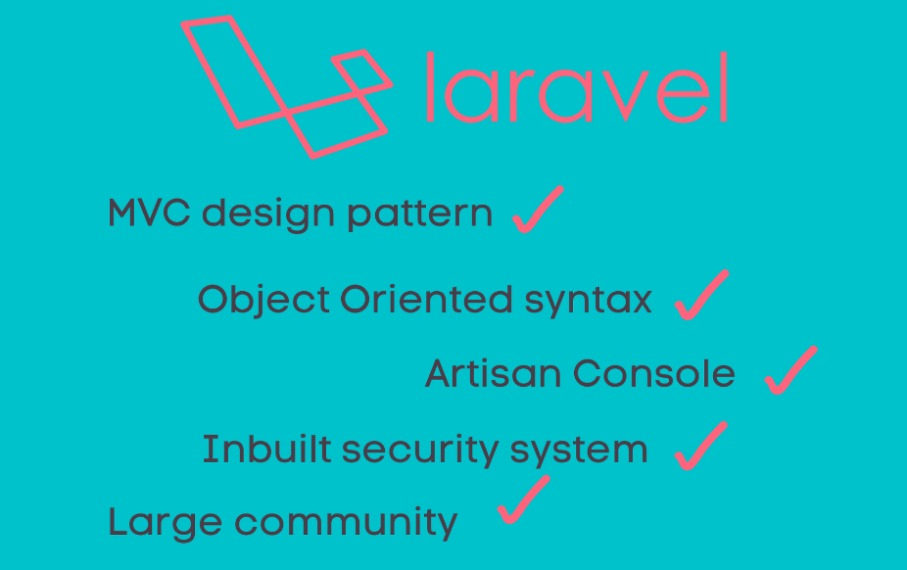
Laravel has a packaging system that helps automate many libraries and support software, making custom development solutions readily available. It also has an Artisan Console, which is a command-line tool that allows automation of repetitive tasks. This majorly speeds up the development.
Besides, Laravel provides unit tests as default and enables easy integration of other testing frameworks. Unit tests can also benefit from the Artisan Console command, which also will speed up debugging.
Laravel is generally considered to be one of the fastest PHP Frameworks.
Finally, due to Laravel’s popularity, there is a large developer community; consequently, it is easy to find developers or seek advice.
Symfony
Developed in 2005, Symfony is one of the most mature and reliable PHP frameworks. It has two significant specifications – Bundles and Components. Bundles are packages of files (of various formats) that help to develop multiple features.
Bundles are similar to plugins but are bespoke to Symfony. They are decoupled, and, therefore, can be reconfigured and reused as many times as needed. This speeds up the development and reduces costs.
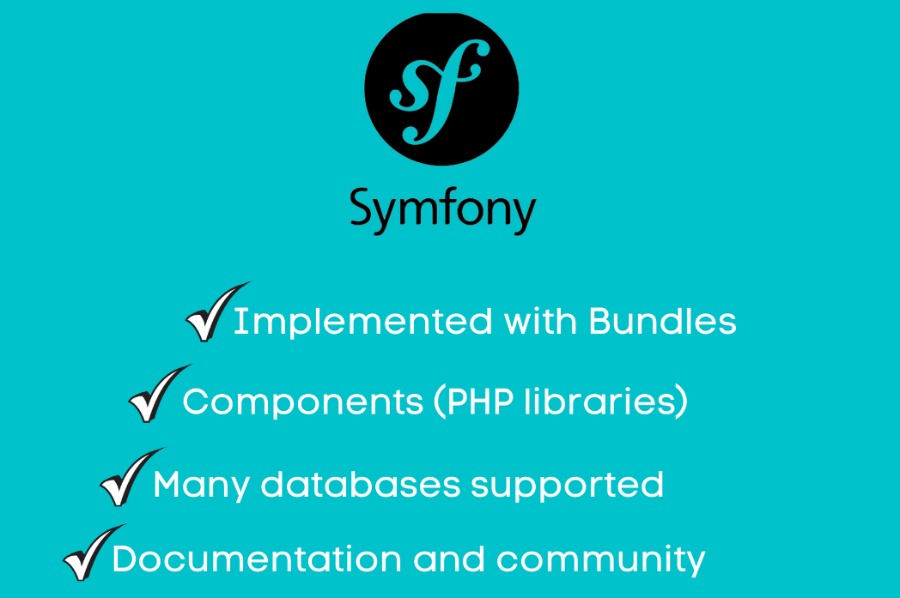
Components are modular, decoupled, and reusable PHP libraries. Together, Bundles and Components help to improve architecture and reduce the number of dependencies. Consequently, making changes is more accessible and safer since the risk of breaking existing code is lower.
Symfony also supports most of the databases when compared to other frameworks.
All of these features make Symfony the top choice for scalable projects.
Finally, since Symfony is one of the oldest frameworks, it has much good quality documentation and a large community.
Laminas Project (Zend Framework)
Most people know this framework as Zend Framework, but recently it has gone through some transformation and now is under Laminas Project's name. It still is a continuation of Zend Framework. However, for the newest updates, it is required to migrate to Laminas-branded packages.
Laminas Project is an MVC-based framework launched in 2006.
It is fully Object-Oriented, which makes code reusable and well structured. Laminas is made of fully customizable components – they can be used to build full projects, project parts, or simply used as individual libraries. This decoupled nature makes Laminas Project a “glue” framework. It means that it can adjust and glue together any existing application.

Laminas Project has a set of strict guidelines and standards, which leads to good quality code. It also requires developers to test the code to ensure the quality is maintained.
There is a large community and documentation support so any query can be resolved.
CodeIgniter
Codeigniter is another MVC-based PHP framework. It is an open-source framework developed in 2006. CodeIgniter is easy to install, as the configuration is simple and non-time consuming.
The most remarkable benefit of CodeIgniter is fast execution. Indeed, PHP's response time in this framework is impressive, which can be suitable for websites that need to run a large number of operations quickly.
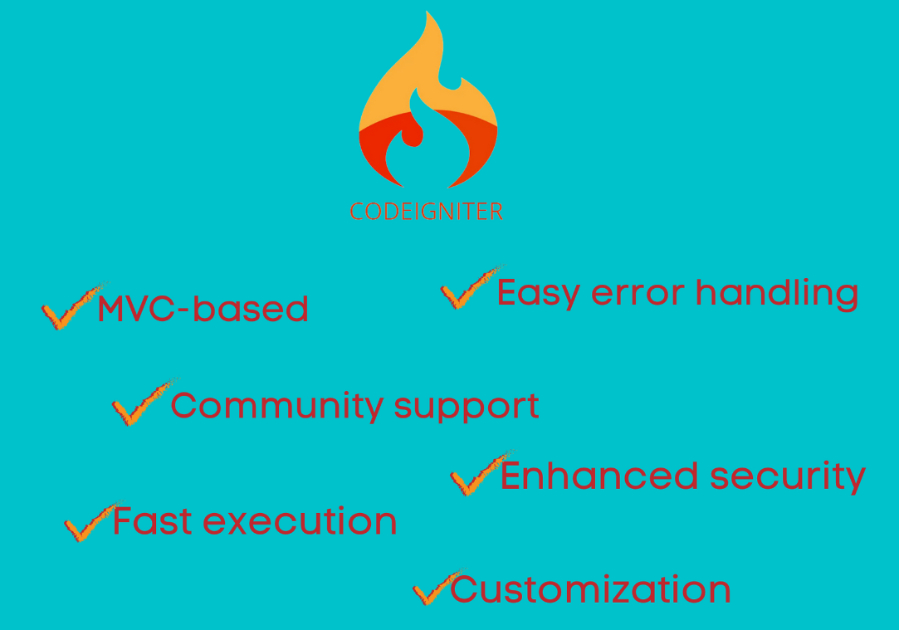
Development in CodeIgniter is also known to be speedier due to several reasons:
- It requires less code to be written to run.
- Loads of libraries come in as default, which reduces to time of chasing third-party libraries. CodeIgniter has also improved debugging and error handling. The framework instantly displays all existing errors on the screen, which reduces debugging effort significantly.
- The latest versions of CodeIgniter have improved their testing features, and many testing tools are now available.
CodeIgniter also has enhanced security features. It contains diverse inbuilt functionalities for input and output filtering. There also is some features available for encryption and decryption. This functionality simplifies managing data and enhances installation processes.
As it comes with the majority of well-established PHP Frameworks, CodeIgniter has a large community. Resolving queries, hiring, and imply gaining knowledge is made easy with community support.
Yii
Yii is an open-source, component-based MVC PHP framework, built-in 2008. Due to being a lightweight framework with enhanced caching mechanisms, Yii is best suited for high-traffic applications, such as portals, forums, CMS, RESTful Web Services, eCommerce, etc.
Yii also has a robust class code generator (Gii) which enables rapid prototyping and OOP. It is an extension that generates models, forms, and modules. It makes the coding faster and less repetitive.
Yii also has excellent security features. It comes with a security application component that has some security methods that can be applied instantly. These methods and features cover bcrypt password hashing, encryption, authentication, authorization. It also has inbuilt classes to protect from Cross-Site Scripting (XSS), Cross-Site Request Forgery (CSRF), and other types of attacks.
The framework prides itself on excellent documentation and easy-to-use structure. For example, it will only take a few minutes to set up and start using Yii. Finally, it provides a great Migration Tool that will make migration fast and straightforward.
CakePHP
CakePHP is another famous and well-established open-source web framework, developed in 2005. Just as the majority of PHP frameworks, CakePHP follows the MVC design pattern.
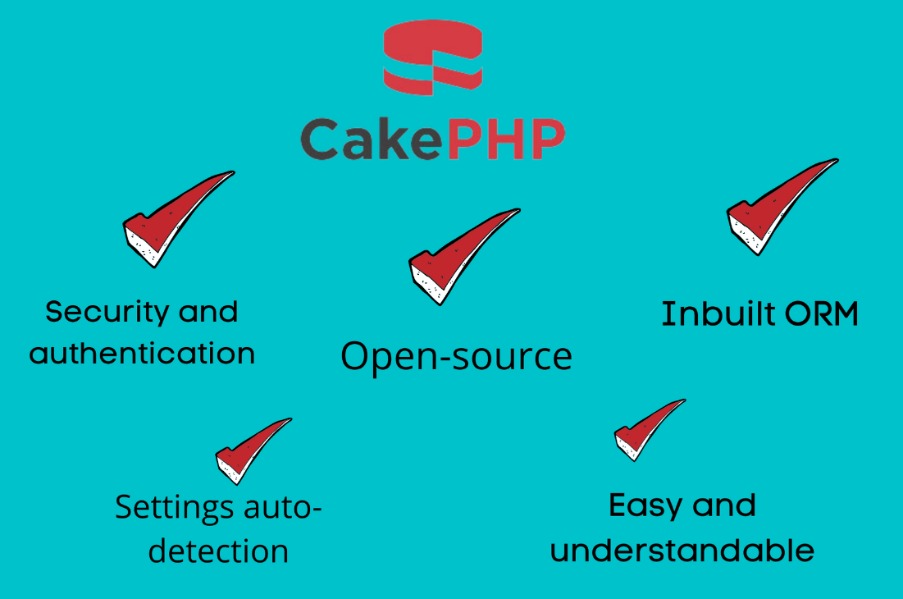
Cake PHP suggests one of the easiest configurations available – all you need to do is connect the database, after which the framework can be used. All other set-up functions are automated.
CakePHP is an Object-Oriented framework with a specific set of tools for Object-Relational Mapping (ORM). ORM is a technique for converting data between incompatible type systems. Inbuild ORM in CakePHP specializes in relational databases and can be extended for further usage.
It also contains Components and Helpers as well as a large number of plugins.
CakePHP also has both core and custom sets which are essential for successful development.
Conclusion
We now have had a look at the most popular and favored PHP frameworks. They all have individual features that make them stand out from one another. Whilst there is no such thing as a “bad” framework, picking a framework wrong for your needs is a possible mistake. The very best way to ensure that your eCommerce needs are met is to consult the experts. At Wiserbrand we offer eCommerce web development services and will be happy to discuss, support, and help you implement a PHP framework of your choice.
